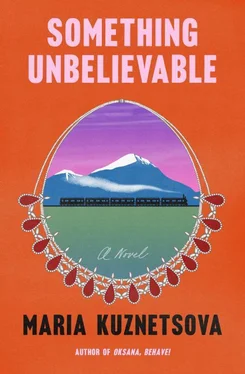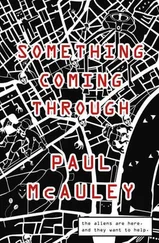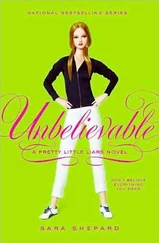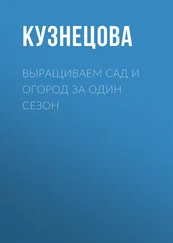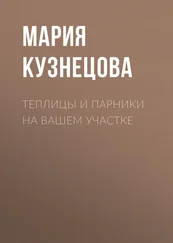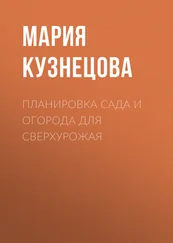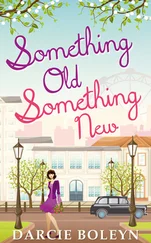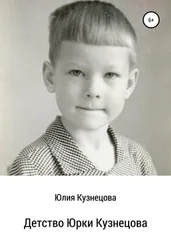Мария Кузнецова - Something Unbelievable
Здесь есть возможность читать онлайн «Мария Кузнецова - Something Unbelievable» весь текст электронной книги совершенно бесплатно (целиком полную версию без сокращений). В некоторых случаях можно слушать аудио, скачать через торрент в формате fb2 и присутствует краткое содержание. Город: New York, Год выпуска: 2021, ISBN: 2021, Издательство: Random House, Жанр: Историческая проза, на английском языке. Описание произведения, (предисловие) а так же отзывы посетителей доступны на портале библиотеки ЛибКат.
- Название:Something Unbelievable
- Автор:
- Издательство:Random House
- Жанр:
- Год:2021
- Город:New York
- ISBN:978-0-52551-191-5
- Рейтинг книги:3 / 5. Голосов: 1
-
Избранное:Добавить в избранное
- Отзывы:
-
Ваша оценка:
- 60
- 1
- 2
- 3
- 4
- 5
Something Unbelievable: краткое содержание, описание и аннотация
Предлагаем к чтению аннотацию, описание, краткое содержание или предисловие (зависит от того, что написал сам автор книги «Something Unbelievable»). Если вы не нашли необходимую информацию о книге — напишите в комментариях, мы постараемся отыскать её.
Something Unbelievable — читать онлайн бесплатно полную книгу (весь текст) целиком
Ниже представлен текст книги, разбитый по страницам. Система сохранения места последней прочитанной страницы, позволяет с удобством читать онлайн бесплатно книгу «Something Unbelievable», без необходимости каждый раз заново искать на чём Вы остановились. Поставьте закладку, и сможете в любой момент перейти на страницу, на которой закончили чтение.
Интервал:
Закладка:
The hopeful trill of Skype from my laptop wakes me from the thin sleep I managed to get after I stopped thinking about Mama. I check the clock and see I’m half an hour late for our meeting and Baba has grown impatient. I run a hand through my hair before I answer, trying to look marginally presentable, to brush away any lingering thoughts of my mother for the moment.
It’s already evening in Kiev, and the kitchen lamp shines over my grandmother’s long silver braid. As long as I have known her, she has kept her face plain and put on the same pearl earrings, but I have always found her long braid extravagant. Though my grandfather was one of the most well-known and wealthy men in Ukraine, she doesn’t act like it: she insists on public transportation, refuses help around the house, and wears the plainest clothes. And she wants me to be the same way, which is why she doesn’t spoil me and hasn’t even floated the idea of giving me a cent of the profits she’ll get from selling her furniture, though she’s been this way for so long that I’m not mad about it, most of the time anyway. I’m just happy for her company.
“You look exhausted,” she says, peering at me.
“That’s because I am.”
“Naturally.”
“Where’s the girl?” she asks triumphantly.
“Sleeping in her crib, as a matter of fact.”
“Your grandmother knows best, doesn’t she?”
“On occasion,” I say, and I even have it in me to laugh a little.
I miss her so fucking much, right then. Her firm hugs, her unshakable confidence. How she always made me feel like everything was going to be just fine, that I was getting all worked up over nothing. I haven’t seen her in real life since last summer, when I visited her and Grandpa in Kiev just before I got pregnant. When Grandpa died, I was too far along to visit and help out. Which was devastating, because he had been so good to me, in his way. Since I was Antigone in seventh grade, a pretty morbid role for a kid, Papa made a habit of filming me performing and sending the tape to my grandparents. My grandmother would tell me I was stunning, but Grandpa would give constructive feedback in the short letters he sent me: You overdid the theatrics at the beginning. But it was the opposite problem later on, child, I hardly felt your love for your dead brother, you were like a cold fish, he wrote . This progressed all the way to the last thing I did, my three seasons on Seeing Things. You didn’t pause for long enough when you discovered that the coroner was the murderer. You needed to let it sink in. And later, you lingered too long when you were making a joke. It’s all in the timing, dear, he had written. “Thank you for the advice,” I would tell him over the phone. “I’ll think about it next time.” “What else is a grandfather for?” he would say with a chuckle. I was not offended; Papa said I was perfect and so did Baba, and Yuri didn’t really have a critical eye, and I appreciated it. He was passionless when he said it, like he was just examining a model of a bridge for defectiveness, and I could see why he was so good at his job. And the thing was, he was usually right. He could see things clearly. Which made me wonder, sometimes, if he knew about how much I drank or the losers I dated, or how hard I fought with Mama, or even about my grandmother’s seaside flings; how could he not?
My poor grandfather. He was stern but innocent, and I loved him like crazy, though I know Baba did, too, in her own way. It killed me that I couldn’t help Baba bury him, that though she had a bunch of Institute lackeys arrange the whole thing, I could not be there to comfort her.
And now I’m the one who needs comforting. Though she keeps telling me she’s too old to travel, I think I can wear her down. “If you visit us, you can see Talia firsthand,” I try.
My grandmother snorts. “And do what with her, discuss economic affairs?”
“Don’t you want to see your family?”
“Foolish girl,” she says. “I’m seeing you right now.”
“It’s not the same and you know it,” I say, my voice cracking.
“You poor thing,” my grandmother says, and this makes me choke up, because there’s nothing I hate more than pity, and because she’s the one who is all alone, not me, though anytime I ask her how she’s doing she just says, fine, fine. She moves closer to the screen, like she’s inspecting my pores.
“Do you remember that rickety old wooden bridge in Mariinsky Park, the one overlooking the ravine?”
“Of course,” I say, unsure of where this is going.
“When your father was a baby, I would take him for a stroll there almost every morning. I would look down and oh! It was such a welcoming abyss. I wanted to throw myself off every time for the first two years at least.”
“Why didn’t you?”
“One of those mornings, as I was standing on that damn bridge, we got caught in a thunderstorm and I had to push the stroller home like a maniac. And I thought, Well, the gods should take me now. I am ready to go—I can’t go on anyway. But I saw your father and his needy, shriveled-up face in the stroller, and I thought, No, no, they can’t have me, this boy would be lost without me, I guess I’d better just go on and live.”
“Did Grandpa know you felt that way?”
“Every woman feels that way!”
“I think some feel better than others,” I say, though I don’t feel better than that, not at all. But I don’t have a large sample size or know a ton of moms except my friend Stephanie, who seems to be doing just fine, though she’s rich now and that can’t hurt, though she’s always been the kind of person who doesn’t get wet when it rains, nothing can bring the girl down. But I don’t want to dwell on this shit any longer. I want to hear my grandmother’s story, even if I’m not sure why I’m so desperate for it right now, why I finally got tired of doing my hair next to my ancient photograph of my great-great-grandmother without really knowing why she ended her own life.
“Anyway—” I say.
“Of course. Where were we?”
I smile. My grandmother is just faking it. She knows exactly where she left off, but she wants to build up the drama.
“You were leaving Kiev at last,” I tell her anyway.
“Indeed,” she says, but she seems distracted, giving me this odd little smile.
“What’s wrong?” I say.
“Nothing,” she says. “Nothing at all. For a moment there—it was the strangest thing. You looked exactly like my sister.”
PART II

SINISTER SISTER
Larissa
My family stood in our courtyard in the early morning with our suitcases, waiting for the Orlovs’ car to take us to the station while my sister scurried around like a maniac, trying to summon her beloved stray cat, Timofey. The night before, she cried madly when parting with the three vapid indistinguishable brunette friends I called “the three Annas,” had a prolonged goodbye with Stella and Ella, the mother and daughter who lived in the room to our left and put makeup on her face when Mama wasn’t looking, wept when saying farewell to our groundskeeper, Maxim, and she even shed a tear when Aunt Mila and Uncle Igor Chernak, the cranky retired engineers in the room to our right, gave us marmalades as a parting gift. Minutes earlier, my sister put a hand to her heart when the Kostelbaums, the Jewish family with six children who only communicated with us by pounding on the ceiling with a broom when we were too loud, pounded on it one last time as we left, this time in valediction. But these goodbyes were not enough for Polina. She would not feel complete if she did not see her mangy black cat, a foul creature who regularly stalked our balcony in hopes of her lavishing him with love and milk. Like many of the world’s common fools, Polya had a soft spot for animals, though she could hardly be bothered to be polite to her own sister.
Читать дальшеИнтервал:
Закладка:
Похожие книги на «Something Unbelievable»
Представляем Вашему вниманию похожие книги на «Something Unbelievable» списком для выбора. Мы отобрали схожую по названию и смыслу литературу в надежде предоставить читателям больше вариантов отыскать новые, интересные, ещё непрочитанные произведения.
Обсуждение, отзывы о книге «Something Unbelievable» и просто собственные мнения читателей. Оставьте ваши комментарии, напишите, что Вы думаете о произведении, его смысле или главных героях. Укажите что конкретно понравилось, а что нет, и почему Вы так считаете.
